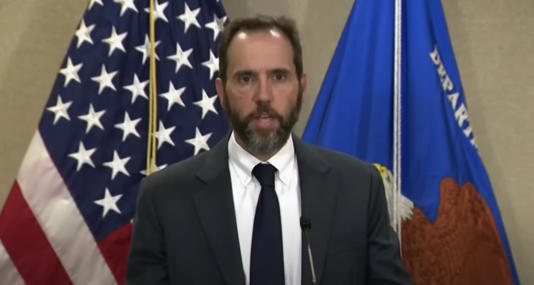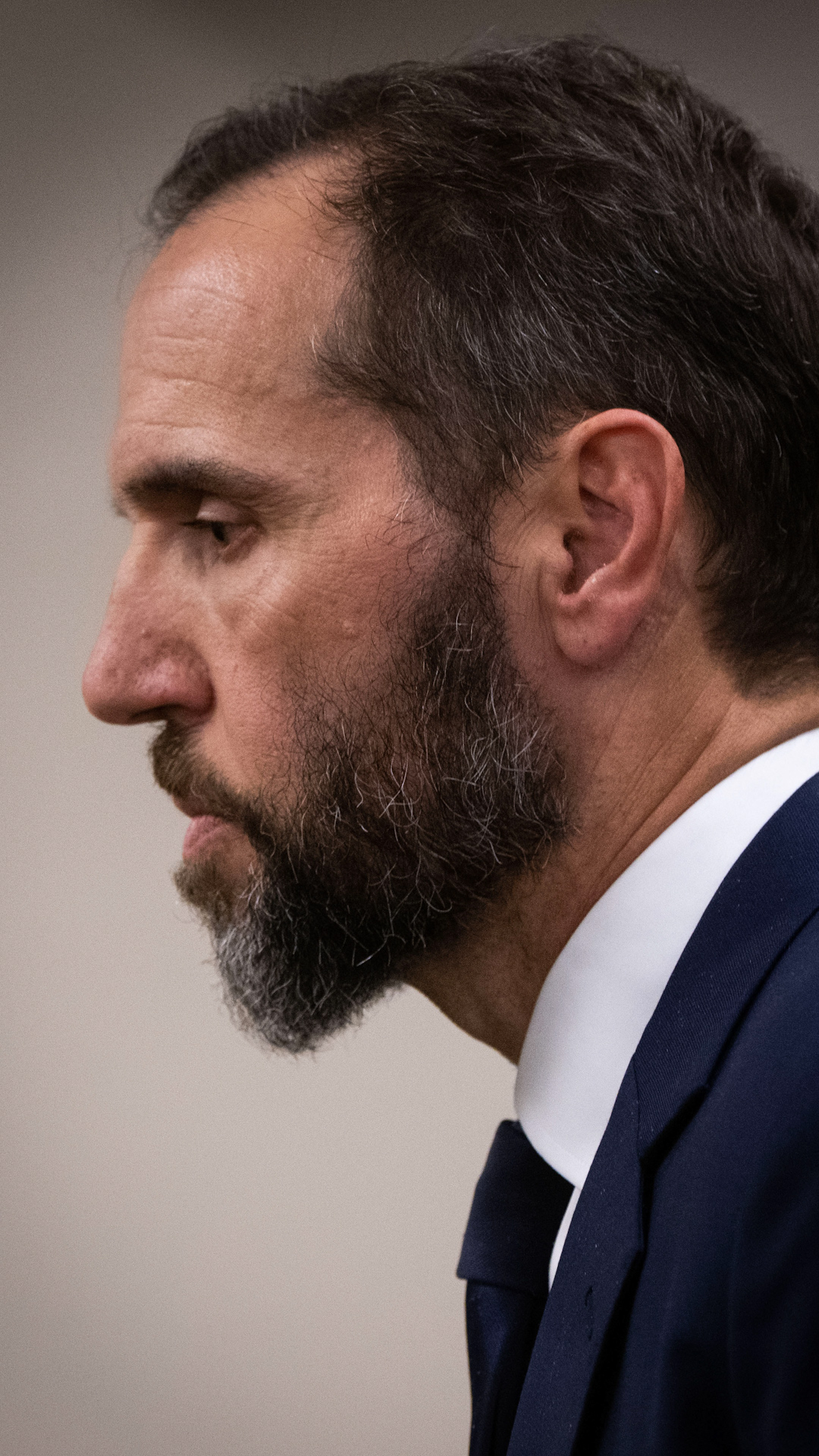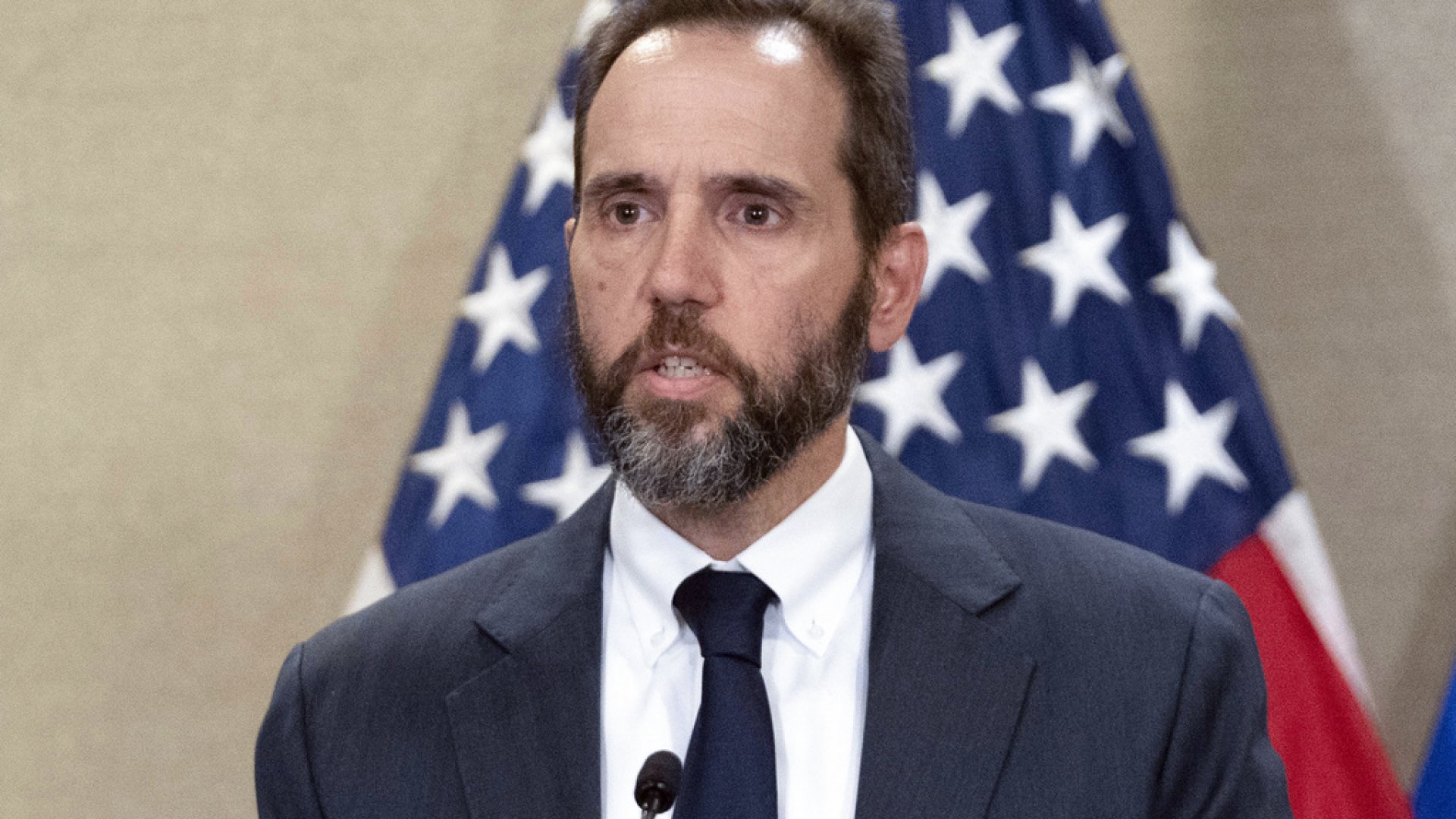DUQUESNE — Nine years ago Leo Beatty was in his early 30s and working for U.S. Steel when president Barack Obama came to the Mon Valley plant. The visit was a post-State of the Union opportunity to sign an executive order authorizing “myRA,” a new retirement savings option for people who lacked an employer-administered account.
Mr. Beatty, then a registered Democrat who voted for Mr. Obama twice, said it was a thrill: “I really liked him then so it was exciting,” even though his presidency wasn’t always what he had expected. “I still like him. I am just not sure how much he did for the middle class Black community, or middle class white community either for that matter.”
Today Mr. Beatty is no longer a Democrat, nor after thirteen years on the job does he work for U.S. Steel. And that “myRA” program was shuttered only three years later.
Mr. Beatty voted for Joe Biden in 2020, but that has become even more of a disappointment.
“Biden dropped the ball for me on inflation, so no I don’t think he’s doing a good job — not just because I don’t think he has the cognitive ability to do it effectively, but because he knows no one like us. And by that I mean middle-class America,” said Mr. Beatty, who is now a registered Independent.
When asked to expand about his problems with Mr. Biden’s presidency he said, “Well, how much time you got?”
Mr. Beatty said it is insulting for Mr. Biden and the Democrats to keep saying how great the economy is. “Maybe for his friends. It is about the rich getting richer and putting us working class people against each other instead of looking at the real problem. The real problem is the rich people against poor people. It’s more classism than racism,” he said.
Mr. Beatty, who has earned multiple degrees and certificates in the trades, criminal justice and leadership, said the media tries to divide people on the basis of skin color.
“But we have a lot more in common than we have different. All of us want to be safe. All of us want our kids safe. All of us want to live a decent life. That’s all we want.”
Mr. Beatty is one of six middle-class Black voters, including his wife Crystal, who sat with me for hours last Sunday discussing the state of politics. What was most interesting is their shared belief that neither party is listening to them, with the Democrats taking the brunt of their criticism for promising change that never comes and taking them for granted, while Republicans struggle — sometimes comically — to give them a reason to support the party.
Missing middle class
My interviewees are optimistic about their lives and their communities, but very disappointed in this administration. In their eyes, Mr. Biden and the Democrats have failed their children and grandchildren by overreaching on cultural issues and underperforming on the basics of governance. Specifically, they are very frustrated over how inflation and crime remain serious problems in their daily lives.
 Donna Lee of Wall retired from theAllegheny County Health Department. She says her biggest concerns are what children are being taught in school and out-of-control-crime.
Donna Lee of Wall retired from theAllegheny County Health Department. She says her biggest concerns are what children are being taught in school and out-of-control-crime.
Tap or slick for larger image.Donna Lee said she doesn’t consider herself a member of either party. “But I do my civic duty and vote in every election,” the retired Allegheny County Health Department employee said.
Ms. Lee said locally she mostly votes Democrat, but won’t discuss her 2020 vote. “I’ll pass on that question,” she says smiling. The grandmother said she is frustrated with the Biden administration for challenging the removal of sexually explicit books in schools — so much so that she sent the president a letter about the affect these curricula are having on children.
“Oh he wrote me back alright, about immigration,” she said, throwing her hands up in the air.
 Chester Harper of Duquesne, afacilities manager at a university in Oakland, says he is a registeredDemocrat but considers himselfindependent.
Chester Harper of Duquesne, afacilities manager at a university in Oakland, says he is a registeredDemocrat but considers himselfindependent.
Tap or slick for larger image.Dressed in a dark navy suit, Chester Harper cuts a dapper figure all the way down to his leather briefcase. A lifelong Democrat and facilities manager at Carnegie Mellon University, Mr. Harper grew up in McKeesport and now calls Duquesne home. He says he voted for Mr. Biden — then makes a face and shakes his head when asked to give his assessment.
“He is not looking out for the needs of the common man. He has this agenda that is out of sorts with the average voter. He says all the time he knows middle class voters and he has their back — but no, he doesn’t, because he hasn’t been out there. He’s not in our world and [he hasn’t] listened to us,” Mr. Harper said.
Out of touch
Crystal Beatty, Leo’s wife, said she is a registered Democrat, but that doesn’t determine her votes. “Truly I’m more of an Independent because I want to vote for the person who’s most like me — and not necessarily the color of my skin, but the values I believe in,” she said.
Ms. Beatty cringes at the reminder of Mr. Biden telling a Black radio host in 2020 that Black voters torn between voting for him and President Trump “ain’t Black.” “Let me put it this way, so I am not rude, the person who most represents my values wouldn’t even consider thinking that, let alone saying it out loud,” she said.
As for local Democrats U.S. Rep. Summer Lee and U.S. Sen. John Fetterman, she is unimpressed with them as well. “Have you seen Braddock, it’s like you have proof of what you’re not doing and how much you care,” she said of Mr. Fetterman, who lives there, and Ms. Lee, who represented it in the state house.
 Winifred Washington, a registered Democrat, said she is disappointed in Joe Biden. She believes if he came to her neighborhood he wouldn’t understand the problems it is facing.
Winifred Washington, a registered Democrat, said she is disappointed in Joe Biden. She believes if he came to her neighborhood he wouldn’t understand the problems it is facing.
Tap or slick for larger image.Winifred Washington said localism is something Democratic politicians have forgotten to focus on. “Take something as simple as Duquesne High School. That school was the center of the community and children attending school in their hometown are a visual reminder that our future will be better,” she said.
In 2007 the state Department of Education split Duquesne’s high school students between West Mifflin and East Allegheny high schools. It was a move that fractured the community and took away a storied football program that drew people together.
“It is not that I expect that Joe Biden would understand or deal with that kind of displacement and the impact it would have. His problem is he doesn’t know how to relate to anyone who has had that happen to their community,” she explained.
“Democrats used to be all about this kind of situation — they used to fight for it— now they have turned to fight for things I often don’t understand.”
She voted for Mr. Biden. Is she happy about it? “No,” she said. “Its just sad, he’s too old and he is out of touch.”
 Ardell Martin of Duquesne says the Democratic Party has taken Blackvoters for granted for too long and no longer represents middle class Black people; she is unhappy with Joe Biden and has no interest in Donald Trump.(Salena Zito)
Ardell Martin of Duquesne says the Democratic Party has taken Blackvoters for granted for too long and no longer represents middle class Black people; she is unhappy with Joe Biden and has no interest in Donald Trump.(Salena Zito)Pathetic president
Ardell Martin, who spent most of her career working for community newspapers, said she even looking at Mr. Biden makes her so uncomfortable. “I think he’s pathetic. In a way, I feel bad for him. I really do. I think he’s lost.”
Her problem with him is the problem she has with all politicians, “You may say I’m cynical, but I don’t think they care. They don’t care about anybody. A lot of them are in it for the pension plan that they’re going to get after their terms are up. Some of them, it’s an ego thing.”
Still she says she dutifully votes, “I honor my obligations. I wish that they would remember that they’re working for us people I think they have lost empathy for.”
North Side native Salena Zito is a national political reporter for The Washington Examiner, a New York Post columnist and co-author of “The Great Revolt: Inside the Populist Coalition Reshaping American Politics”

























